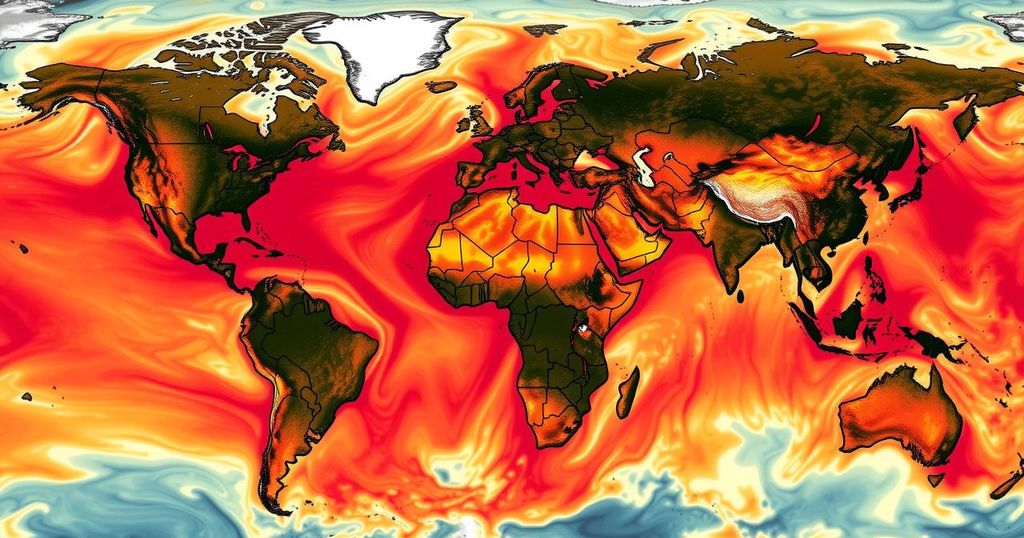In 2024, the world recorded its hottest year ever, with global temperatures 1.46 degrees Celsius above pre-industrial levels. NOAA confirmed that every year in the past decade ranks among the hottest on record, with the trend expected to continue without significant climate action. The impacts are being felt across continents, highlighting the urgency for decisive strategies to combat climate change.
In 2024, it has been confirmed by United States government scientists that the planet experienced the hottest recorded temperatures across both land and oceans, indicating a significant escalation in the ongoing climate crisis. According to the National Oceanic and Atmospheric Administration (NOAA), last year surpassed all prior temperature records dating back to 1850, with an increase of 1.46 degrees Celsius (2.6 degrees Fahrenheit) above pre-industrial levels, primarily attributed to extensive fossil fuel combustion. Notably, this new record exceeds the previous high set in 2023 by 0.1 degrees Celsius (0.18 degrees Fahrenheit).
The alarming trend reveals that all ten of the hottest years on record have occurred within the last decade. Supporting this information, scientists from the European Union noted that 2024 was also 1.6 degrees Celsius (2.8 degrees Fahrenheit) higher than pre-industrial averages, crossing the critical threshold of 1.5 degrees Celsius (2.7 degrees Fahrenheit). NASA’s data corroborated these findings, showing a similar increase of 1.47 degrees Celsius (2.6 degrees Fahrenheit). Gavin Schmidt, a senior climate scientist at NASA, remarked on the unparalleled nature of these temperature levels in human history, stating that temperatures during ancient warm periods were significantly lower compared to today’s values, suggesting an alarming trajectory towards unprecedented global warming.
The escalation of temperatures has been attributed to human-induced climate change, primarily due to the burning of fossil fuels. Climate scientists have long warned that unchecked emissions could trigger severe weather patterns and exceed the internationally agreed temperature limit of 1.5 degrees Celsius established by the Paris Agreement. The current data not only reflects a catastrophic reality for Earth’s ecosystems but also emphasizes the urgent need for governmental action to mitigate future impacts on vulnerable populations.
In conclusion, the confirmation of 2024 as the hottest year on record underscores the accelerating pace of climate change and its drastic impacts across the globe. With all ten hottest years occurring in the past decade, the need for immediate and substantial climate action is more pressing than ever. The developments highlight an alarming trajectory; hence, concerted efforts are essential to avert further catastrophic climatic effects.
Original Source: www.theguardian.com






